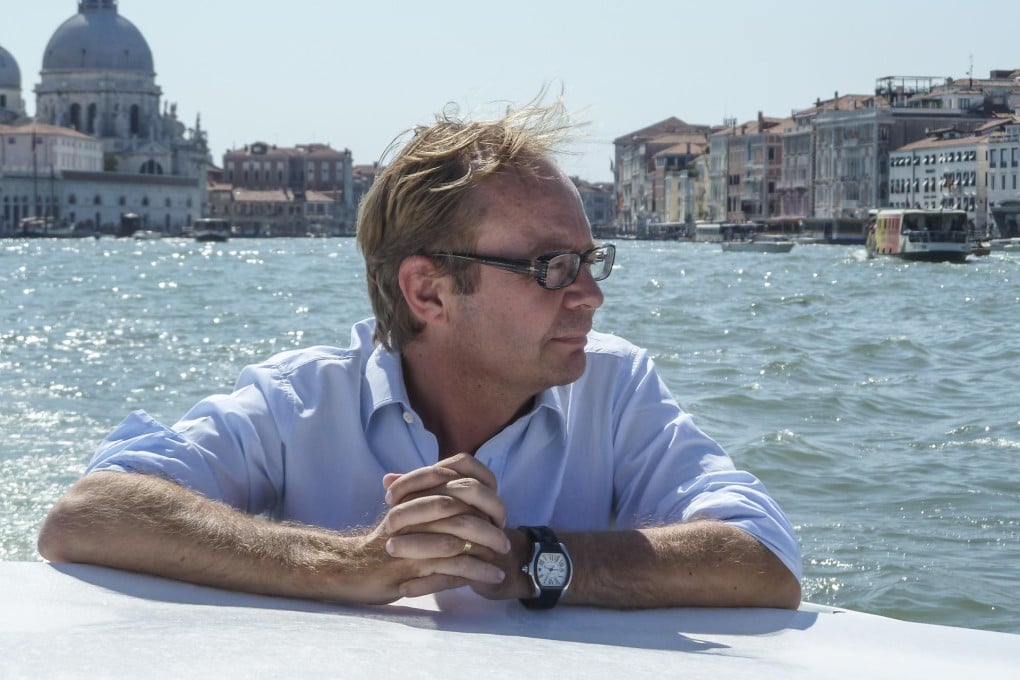My life: Julian Lees
The Hong Kong-born stockbroker-turned-author tells Amy Chew about his family's relationship with China

HMy mother's maternal grandfather was a high-ranking [Russian] Cossack general who served under the tsar. In 1917, with the Bolshevik revolution escalating, he was forced to flee Russia with his family. They went first to Harbin and later Shanghai, where he worked as a doorman at the Wing On Department Store. He had two daughters, Agrippina and Galia. The older Agrippina, my grandmother, married George Talbot, the son of a wealthy Eurasian family that owned one of the most successful Chinese herbal companies in China.
George had a charmed life. He didn't have to do much work. During the second world war, he and his family were interned in a university named the Lung Wah Camp as they were British citizens. When George heard he was going to be interned, he went to his tailor to get some white trousers as he was going to a new place. He told his tailor he was going to a "camp". My grandfather's first job in camp, dressed in his white trousers, was garbage duty. After that, he was put in charge of ensuring everyone had clean water to drink, which meant keeping huge coal fires burning. Every morning, people queued up with their flasks. Water was rationed like food. He and his family were released in 1945 and they returned to their family home, a mansion on Bubbling Well Road, next to Nanjing Road.
My mother was born in Shanghai in 1937, well before the communist takeover. I remember her telling me that they had a Chinese cook who spoke fluent Russian and, on weekends, everyone gathered for family meals - there would be 40 people around several tables. She looks back to that time now with great sadness as they lost everything when the communists came. They had an extraordinary collection of rare and priceless Chinese porcelain - it was confiscated by the communists in 1959 and now resides in the Shanghai Museum.
I have never visited our ancestral home in Shanghai, nor the Shanghai Museum. Sometimes I think it is better to leave the past be. Perhaps it's because I would have mixed feelings about seeing the house and the porcelain. My great-grandfather published The Marvelous Book in 1930, with 102 colour images of his collection. I have a copy and browse through it once in a while.
In 1950, my mum and her parents boarded an American ship, the General Gordon, at Taku Bar and sailed to Hong Kong, later to settle in Macau. All they could take with them was 45 pounds of luggage each, everything else was left behind in Shanghai. In Macau, George started up a Chinese herbal medicine business that did quite well. In 1959, he moved the family to Hong Kong. It was there that my father, John Lees, met my mother, Sandra Talbot, and they got married that same year. My father had arrived in Hong Kong in 1955 to work for Wheelock Marden, one of the "hongs". He was their managing director for many years and chairman of Lane Crawford. My mother was what I like to call a corporate housewife; she helped raise his profile whenever she could. She was also chair of the Hong Kong Cancer Ball.
My mother speaks Cantonese, as did my grandfather. However, I picked up the language from my amah, Ah Bing, and from watching cartoons. I was very close to my grandfather, George Talbot, and visited him often. He passed away in 1982.